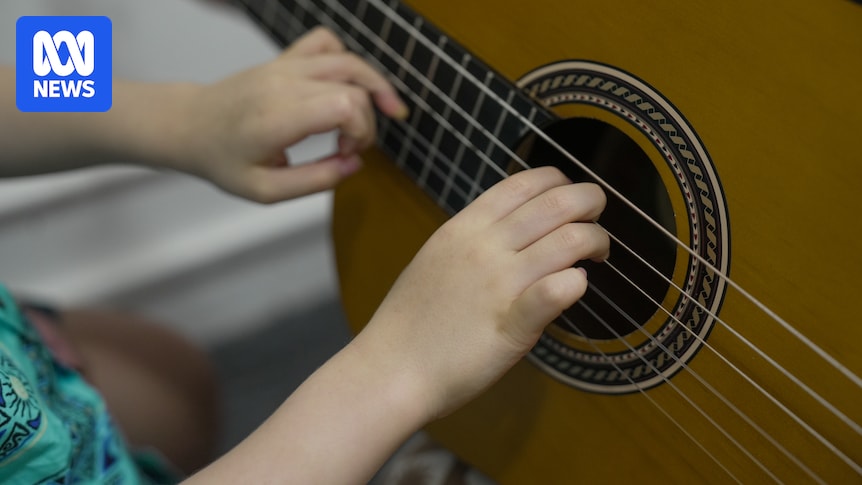Music and art therapists will be able to bill National Disability Insurance Scheme (NDIS) participants at the same rate as counsellors, after a review of their evidence base found they were effective in the right circumstances.
Last year, the federal government slashed the maximum hourly rate that music and art therapists could charge participants from $194 to $68, unless they could prove their services were helping their clients.
That decision sparked outrage in the sector and confusion about whether the therapies were being cut altogether from the NDIS because they lacked evidence.
Therapists said the change would put their businesses at risk and parents were concerned their children would no longer be able to access the services with NDIS funding.
Loading…
In response, the government ordered a review of the evidence behind the use of music and art therapy, led by health economist Stephen Duckett.
On Wednesday, the government released the results and reiterated the therapies would remain available to NDIS participants where there was evidence it would provide beneficial outcomes, and the new maximum amount therapists could charge would be $156.16, in line with the rate for counselling.
To charge that amount, therapists need to be qualified by a recognised professional association.
The new price limit will take effect from November 24.
Do you have a story to share? Email Specialist.Team@abc.net.au
“It is clear that art and music therapies can be effective and even life-changing for some people with disability,”
Dr Duckett said.
“The current hourly price limit for art and music therapies under the NDIS is too high … my recommendation is that $156.16 per hour is more appropriate, in line with the rate for counselling, as these are all developing professions that are not yet nationally regulated.”
NDIS Minister Jenny McAllister said the review provided “a practical way forward” for both participants and therapists.
“It’s really important that participants are able to use the resources that they have in their plan to obtain therapies that are really going to be beneficial to them,”
she said.
“Dr Duckett did find that these therapies can assist some people when they’re delivered in the right way and we’re really pleased to be supporting a set of arrangements which will see people who’ve got the right qualifications supported to provide these therapies.”
NDIS Minister Jenny McAllister says it’s important participants are paying a fair price. (ABC News: Mary Lloyd)
According to the review, 6,788 NDIS participants accessed art therapy in 2023-24, while 7,217 accessed music therapy.
The Australian, New Zealand and Asian Creative Arts Therapies Association welcomed the review’s recognition of art therapy as an “evidence-based therapeutic support”, but expressed “deep concern” over the new payment cap.
CEO Kate Dempsey said it failed to “reflect the complexity, qualifications, and standards involved … particularly when psychology is funded at $232.99 and occupational therapy at $193.99”.
“Art therapy is a distinct allied health profession requiring a master’s qualification and rigorous clinical training,” she said.
“While we respect all therapeutic disciplines, art therapy involves specialised techniques, materials, and clinical approaches that warrant appropriate recognition in pricing.”
The new price limits for art and music therapy will take effect in late November. (ABC News: Cameron Lang)
Wednesday’s announcement is part of a wider push from governments to slow the growth of the NDIS — which has been projected to cost $64 billion by 2029 — and comes after other pricing changes.
An increase to wages for support workers and small reductions in what some allied health professionals could charge kicked in on July 1.
The cap for physiotherapists dropped by $10 to $183.99 per hour, while the cap for dietitians and podiatrists dropped by $5 to $188.99.
The subsidies paid to providers who travel to participants in rural Australia were also reduced by 50 per cent.
The agency that runs the scheme said market analysis had found people with disability were being charged much more than those outside the NDIS — in some cases, 68 per cent — for some services just because they were on the scheme.
Providers have rallied against each pricing change, saying the amounts they can charge have not risen alongside the cost of service delivery, and that some providers could leave the sector because of them.
